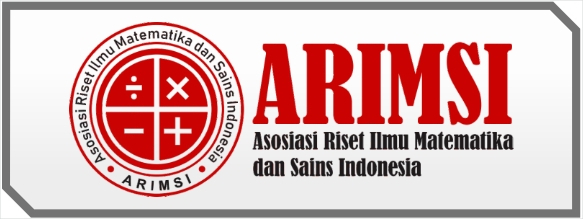Perbedaan Kemampuan Penalaran Matematis Siswa Menggunakan Model Pembelajaran Discovery Learning dan Model Pembelajaran Konvensional pada Tingkat SMP
DOI:
https://doi.org/10.55606/jurrimipa.v3i1.2544Keywords:
Reasoning Ability Mathematics, Discovery Learning, ConventionalAbstract
This research aims: (1) students' mathematical reasoning ability using the Discovery Learning learning model is higher than students' mathematical reasoning ability using conventional learning models in class VII MTs Yaspi Labuhan Deli, (2) the process of solving answers made by students in solving problems in the Discovery Learning learning model and Conventional learning model. This type of research is quantitative research with Quasi-Experimental methods. This research was conducted at MTs Yaspi Labuhan Deli. The sampling technique in this study uses Purposive Sampling techniques, namely class VII-A as a class taught with a Discovery Learning learning model and class VII-B as a class taught with a conventional learning model. The data collection instrument used was in the form of observation sheets and student mathematical reasoning ability test sheets in the form of 3 essay questions. Data analysis in this study used t-Test with Independent Sample t-Test technique with the help of SPSS 20 program. The results of this study showed that the average score of classes taught using the discovery learning model was 78,01 and classes taught using conventional learning models were 72,22. For hypothesis testing carried out using a t-test, from the calculation results obtained a value of (2.664) > (1.66757) with a Sig.2-tailed level of 0.010 < 0.05, which means that rejected and was accepted, so that it is concluded that there is a significant difference in the average mathematical reasoning ability of students using the Discovery Learning learning model and the Conventional learning model. Based on the analysis of the process of completing students' answers to the mathematical reasoning ability test that get Discovery Learning learning is better than students who get conventional learning.
References
Afni, A & Desniarti. (2021). Pengaruh Model Pembelajaran Blended Learning Terhadap Pemahaman Konsep Matematis Dan Motivasi Belajar Siswa MTs Al-Washliyah Pulau Gambar T.P 2020/2021. Jurnal MAJU. Vol : 8. Hal : 485-492
Ariati, C. (2019). Pengaruh Model Discovery Learning Terhadap Kemampuan Penalaran Matematis Peserta Didik Kelas VII SMPN 2 2 X 11 Kayu Tanam Tahun Pelajaran 2018/2019. Jurnal Edukasi dan Penelitian Matematika. Vol. 8 No. 1
Hasratuddin. (2015). Mengapa Harus Belajar Matematika?. Medan: Perdana Publishing
Istarani. (2012). Kumpulan 40 Metode Pembelajaran. Medan : MEDIA PERSADA
Khasinah, S. (2021). Discovery Learning: Definisi, Sintaksis, Keunggulan, dan Kelemahan. Jurnal MUDDARRISUNA. Vol. 11 No. 3
Listika, dkk. (2016). Peningkatan Kemampuan Penalaran Matematis Siswa Melalui Model Discovery Learning. Jurnal Didaktik Matematika. Vol. 3. No. 1
Nurmala, R. (2018). Pengaruh Model Discovery Learning Terhadap Kemampuan Penalaran Matematis SIswa Kelas VII SMP Negeri 3 Kendari. Jurnal Penelitian Pendidikan Matematika. Vol. 6 No.1
Rahman, L. (2019). Pengaruh Penerapan model Discovery Learning Terhadap Kemampuan Penalaran Matematis Ditinjau Dari Pengetahuan Awal Siswa SMP Negeri 3 Tambang Kabupaten Kampar. Juring. Vol. 2 No. 1
Tukaryanto. (2018). Peningkatan kemampuan Penalaran matematik dan percaya Diri Siswa kelas X melalui Model Discovery Learning. Jurnal PRISMA. Vol.1. Hal : 656-658
Downloads
Published
How to Cite
Issue
Section
License
Copyright (c) 2023 Siti Muharramah, Wingston Leonard Sihombing

This work is licensed under a Creative Commons Attribution-ShareAlike 4.0 International License.
















